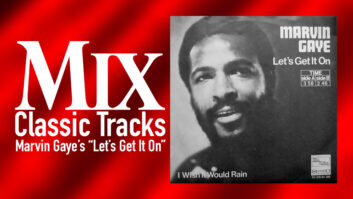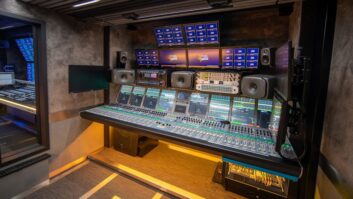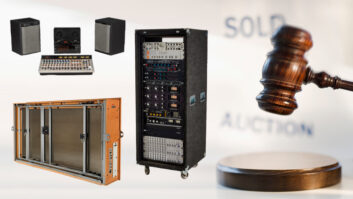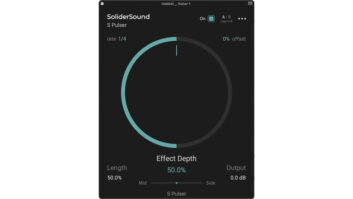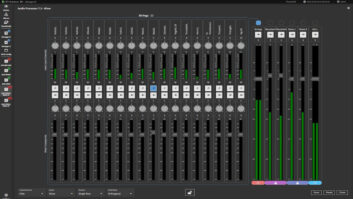
London, UK (September 21, 2020)—”We think that playing around with sound and making music is too good to restrict to ourselves. We’re here to show that non-musicians can create and have fun playing with sound,” says Matt Black, one half (along with Jon More) of pioneering UK DJ duo, multimedia artists and Ninja Tune label owners Coldcut.
Black is referring to Jamm Pro, a highly sophisticated iPad-based beat instrument that they have been developing and refining since the ’90s (a free version, Ninja Jamm, is available for iPhone and Android). But Black might just as easily be referring to Coldcut’s inspirational career.
As non-musicians, the duo have had remarkable success in the 33 years since they dropped their groundbreaking first U.K. record, comprised entirely of samples, Say Kids What Time Is It? The full list of their accomplishments is too long to list here, but their “Seven Minutes of Madness” remix of Eric B. & Rakim’s “Paid in Full,” which kickstarted hip-hop in the UK, and their launching of Lisa Stansfield onto the world stage via “People Hold On” are just two early highlights.
In July, Black and More released Keleketla, their most ambitious project to date. The album features two dozen musicians, mostly African, recorded in South Africa and London, with additional contributions from the Watts Prophets and Antibalas in the United States, and West Papuan activist Benny Wenda. It was mixed—unexpectedly, as it turns out—in China.
“Keleketla” means response, as in call-and-response, and in fact represents Coldcut’s response to an invitation from Johannesburg’s Keleketla Library and charity organization In Place of War to visit South Africa and collaborate with local musicians. A portion of the record’s proceeds will go to In Place of War, which uses creativity in places of conflict as a tool for positive change.
The seeds of the album’s songs came out of sessions at Trackside Creative in Jo’burg’s Soweto township, with musicians selected by pirate radio-turned-record label Mushroom Hour Half Hour, which also supplied the basic recording equipment and engineering support. “We set up and jammed and then did overdubs, particularly of vocals, because we needed those as clean as possible,” says More.
“I used Jamm Pro for my contributions to the backing of a couple of the tracks,” Black says, noting that the four-track loop mixer offers a balance between playing live, DJing and live production. “Ableton is also a mainstay. Combined with the Ableton Push hardware, it’s a pretty wonderful instrument and studio setup all in one.”
Speaking of gear, he adds as an aside, “Ninja Tune has released our first hardware unit, the Zen Delay. It’s a stereo valve delay unit—the only one on the market, I think. It’s being done in partnership with Ingmar Koch from [German electronic band] Air Liquide, and Erica Synths, from Latvia—one of the top modular makers.”
Trackside’s studio is essentially a storefront, but that helped the sessions, Black believes. “Looking back, I think it would have been hard for us to get such a fun, productive vibe going in a normal studio, which can be dry and sterile. This was very much like someone’s living room—a little community center with some instruments.”

Black and More took a traditional production role, guiding the collaborators as the ideas flowed. “Jon and I realize that in some ways, we’re two white guys who got lucky with a bunch of samples. But we’ve come full circle and find that our experience DJing and putting stuff together has given us some ability to function as producers,” says Black. “We let the musicians get on with it, basically.”
Having identified the best candidate songs for the album, the pair headed back to England where they sifted through the tracks and made some reference mixes. Further overdub sessions at Denmark Street and Assault and Battery Studios in London added more than a dozen additional musicians to the tracks, including legendary Afrobeat drummer Tony Allen, who has since passed away.
Al Riley—More’s former assistant, now a studio owner working with the likes of Tricky and Jazzy B—handled editing duties, moving between Ableton and Pro Tools. “Al was a big contribution to the record; he was absolutely solid doing these quite intense sessions. You want that cool pair of hands on the faders,” says Black.
Reinventing ‘Remain in Light’ with Angelique Kidjo
Black and More knew mixer Eric Lau from his work with Ezra Collective and other productions. But while they wanted to work with a London-based mixer for convenience, they were surprised to learn Lau had moved to China. As a result, the mix process wasn’t as easy, Black admits. “There were difficulties with not being in the same room, but it’s also good for the engineer to not have you leaning over his shoulder. And it’s good for the producer to have some space to get some objectivity.”
Riley also provided notes on the mixes, which they would pass to Lau. “To Eric’s credit, he was extremely open minded; he hadn’t worked like this before.” Indeed, says Black, “It was a new experience for all of us, but everyone was focused on getting the best results. There were no ego clashes; it was a smooth and joyful experience.”
Black reports that reviews of Keleketla! have been great, although one was somewhat puzzling. “One said it was ‘nicely underproduced.’ We didn’t mean to underproduce it,” says Black. “I guess that because we didn’t mic up Tony’s kit with 17 microphones, we did it in a minimal way.”
That was in keeping with Allen’s signature sound on his classic recordings with Fela Kuti’s band. It was also something the two DJs recognized earlier in their careers. “We realized all those records that we liked were recorded with one and a half microphones, basically, but they had that funky sound we liked,” says Black. “Sometimes less is more when it comes to getting the right sound for the drum kit, especially for breakbeat records.”
This latest album may have taken a few years to put together, but the good news is that Coldcut’s productivity is increasing. “The previous album took us 10 years to do,” says Black. “As we did this one in three years, we feel that we’re slowly speeding up.”
Coldcut • www.coldcut.net
